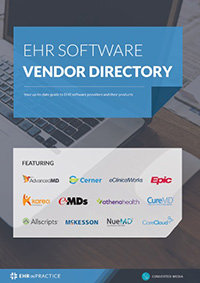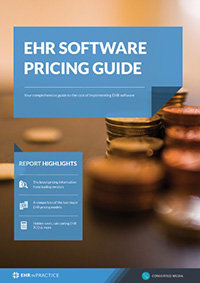Challenges of EHR executive buy-in
A proposed EHR project, to ensure success, will require buy-in from a wide range of stakeholders in an organization. Healthcare executives are perhaps one of the most important stakeholder groups in an organization regarding an EHR project. Buy-in from this group is important given their role in management and finances. However, it is essential to not focus too heavily on pitching a project to the C-suite, and instead solicit input from this stakeholder group regarding opportunities and challenges to an organization’s EHR strategy.
Although received wisdom indicates that investments in EHR technology are considered a cost of doing business, organizations investing in this technology still expect some return on investment. Herein lies the problem, the return on investment that comes from investing in EHR technology can be challenging to quantify, and its benefits are often incremental. Thus, if the expectations regarding return on investment are immediate and clearly understood benefits, then investors might be disappointed.
Given that recent survey evidence from healthcare executives taken at the 4th Healthcare Analytics Summit confirms that a majority (61%) of those executives surveyed viewed their ROI on EHR as terrible both engaging and making the case for an EHR to executives in your organization can be a challenge.
Building a strategic case for EHR
When making a case for any type of EHR project, executives in your organization will likely be concerned with whether investing in an EHR project will make sense from an ROI perspective. Put simply, the money invested in an EHR project must provide some tangible return on the investment either over the short term or the long-term. The return on this investment case can come in many forms such as cost savings or increased revenue. In either situation, the case must be made to executives that investing in an EHR project makes strategic sense on its own from an ROI perspective. Further, the case must be made that an EHR project makes strategic sense in the broader context of the organization. Alternatively, if an organization’s strategy is not heavily reliant on technology, it would not be sensible to invest heavily in an EHR.
Keeping in mind the survey evidence that executives view the ROI from EHR as poor, it is vital to make sure that a clear case is made that an EHR can provide an ROI that works in the context of your organization. How this case is made is dependent on making the case how an EHR can bring value to practice but is also mindful of the potential challenges in EHR implementation and how they can be avoided.
Engaging the executive suite
In addition to making a strategic case for an EHR project, it is also vital to make sure to engage the executive suite throughout the selection and implementation process. Not only will this help create favorable conditions for making the strategic case for an EHR it will also assist in better decision making in the selection and implementation process given the valuable information and insight these stakeholders can provide.
The executives in a healthcare organization play a vital role in any EHR project, as such, it is essential to view them, not just as gatekeepers but as a resource for furthering an EHR project.
Free white paper

How to sell your EHR project to senior management
Your comprehensive guide to securing funding and approval for your EHR project

Featured white papers
-

How to sell your EHR project to senior management
Your comprehensive guide to securing funding and approval for your EHR project
Download -

EHR Vendor Directory
Get the most up-to-date directory of EHR software vendors. Find the best software for your practice.
Download -

EHR Pricing Guide
Get your complete guide to EHR software pricing and project costs. Your headstart on EHR pricing research
Download


